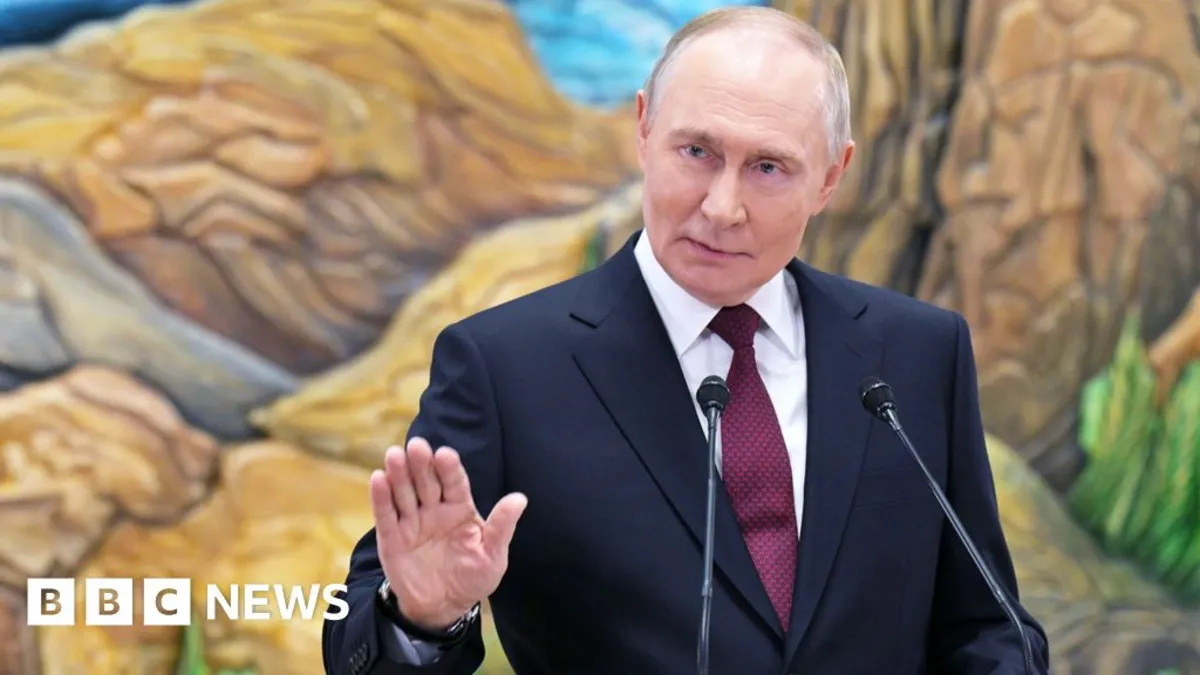
President Vladimir Putin has reinforced his fundamental demands for concluding the ongoing conflict in Ukraine, asserting that Russia will only cease military actions if Ukrainian forces withdraw from territories claimed by Moscow. This stance reflects Putin's long-standing push for legal recognition of the Ukrainian territories that Russia has seized by force, including the Crimean Peninsula, which was illegally annexed in 2014, and the Donbas region, comprising Luhansk and Donetsk, largely occupied by Russia.
For Ukraine, which has categorically ruled out any relinquishment of the parts of the Donbas it still controls, conceding to Russia's demands is simply unacceptable. During a press conference in Kyrgyzstan, Putin accused Kyiv of wanting to fight to the last Ukrainian, a statement he claimed Russia was also prepared to support. He maintained that Russia currently holds the initiative on the battlefield, asserting that hostilities would only cease when Ukrainian troops vacate the contested territories. He warned, “If they don't withdraw, we'll achieve this by force of arms.”
Despite Putin’s declarations, Russia's gradual advances in eastern Ukraine have come at a significant cost to its manpower. According to the Institute for the Study of War, if the current pace continues, it could take Moscow nearly two additional years to capture the remaining parts of the Donetsk region.
Putin's remarks mark the first public acknowledgment of the recent flurry of diplomatic activity, which included intense discussions between the United States and Ukraine regarding a peace plan initially drafted in October. While the plan leaned heavily towards Moscow's demands, it was subsequently revised. Notably, it does not address the crucial issue of the occupied territories, which, along with security guarantees for Ukraine, remains a significant obstacle in negotiations between Moscow and Kyiv.
The Russian president indicated that the new draft plan has been presented to Russia and could serve as the foundation for a potential agreement to end the war. However, he emphasized that it is essential to discuss specific points that require careful diplomatic language. When questioned about the possibility of recognizing Crimea and the Donbas as under Russian de facto control, albeit not legally, Putin stated, “This is the point of our discussion with our American counterparts.”
A US delegation, including special envoy Steve Witkoff, is expected in Moscow in the coming week, with speculation that Jared Kushner, President Trump's son-in-law, may also participate. Meanwhile, Ukraine's top presidential aide, Andriy Yermak, announced that US Army Secretary Dan Driscoll is scheduled to visit Kyiv later this week. On Wednesday, Trump indicated that only a few remaining points of contention exist between Russia and Ukraine, suggesting that any potential meeting with Ukrainian President Volodymyr Zelensky hinges on reaching a peace agreement.
In his comments, Putin reiterated his disdain for the Ukrainian leadership, which he described as illegitimate, asserting that there was no reason to sign any agreements with them. Since the onset of Russia's full-scale invasion in February 2022, Ukraine has been under martial law, preventing the holding of scheduled elections. Earlier this year, the Ukrainian parliament unanimously affirmed the legitimacy of President Zelensky, whose term was set to expire in the spring.
Putin dismissed warnings from European leaders about the potential for Russia to launch attacks across the European continent in the coming decades, stating, “That sounds laughable to us, really.” While the White House and Donald Trump have expressed optimism regarding the recent diplomatic push for peace talks, European officials remain skeptical about whether Putin genuinely intends to end the conflict. On Wednesday, European Commission chief Ursula von der Leyen accused Russia of maintaining a post-World War Two mindset and viewing the European continent as a sphere of influence, where sovereign nations could be divided.